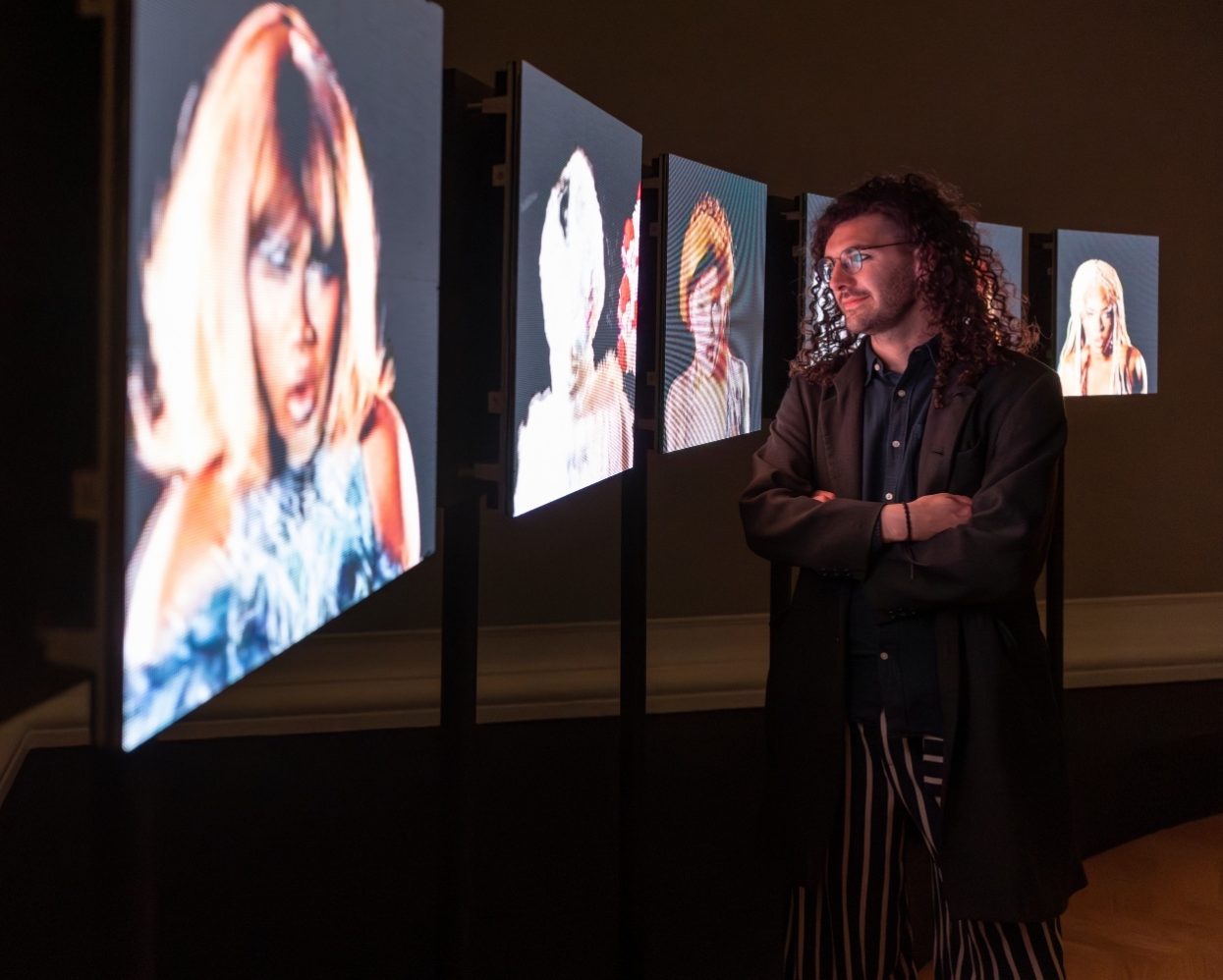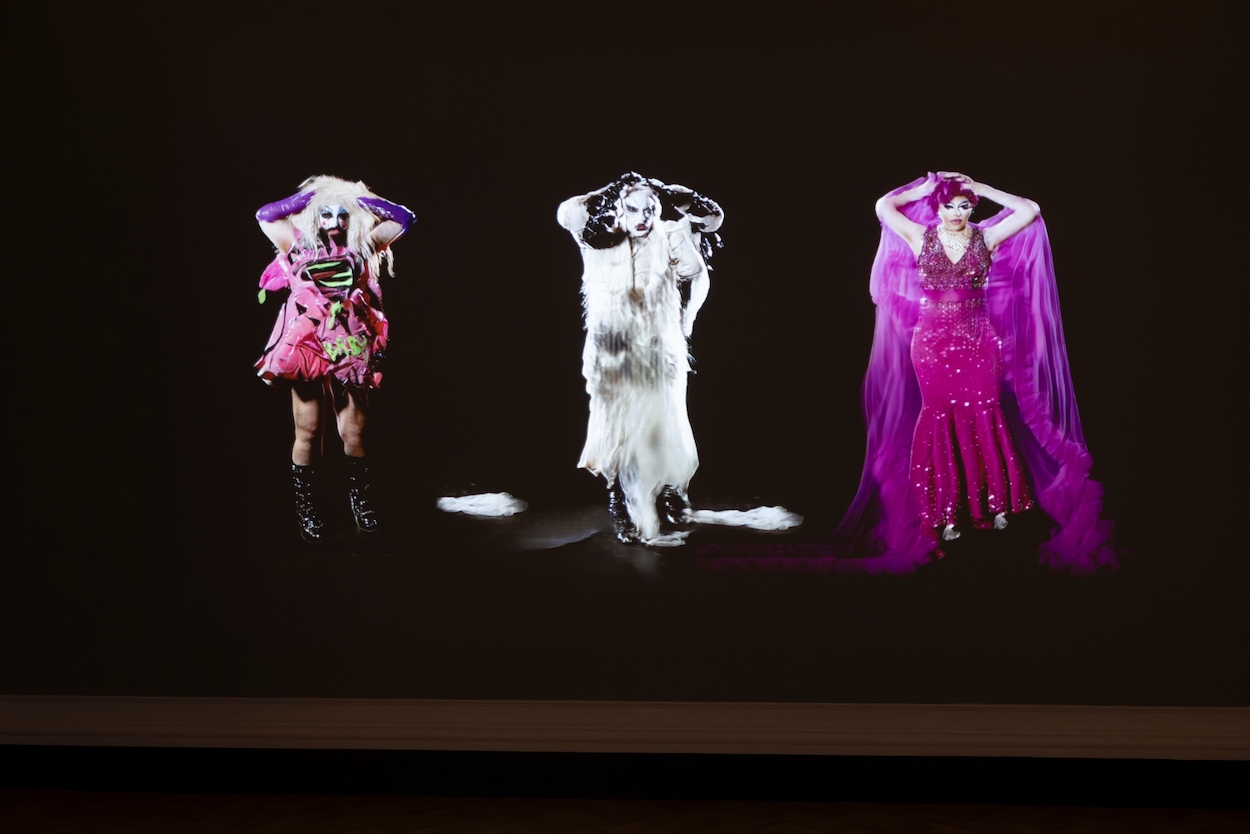ChatGPT has been compared to a “blurry JPEG of the web,” outrage ensued when an AI-generated picture won an art prize, and deepfake porn is ruining women’s lives. AI continues to cause controversy as conversations around the technology evolve, but even Luddites understand that AI models have been trained on data scraped from the internet. That means they’ve been inadvertently programmed with age-old biases from humans—a flaw unearthed by the Algorithmic Justice League and the MIT Media Lab’s Joy Buolamwini, and one that media artist Jake Elwes is aiming to subvert.
“We plan to disrupt the data set by flooding it with a myriad of marvelous queer drag bodies,” recites a shape-shifting Cabaret singer, whose glitchy likeness alternates between dozens of performers at once while belting out the opening lines to Willkommen to rapturous applause.
Such is the premise of The Zizi Show, a deepfake cabaret that Elwes programmed to “queer the dataset.” Available online and at the Victoria & Albert Museum’s newly opened Photography Center in London, the show features a large projection of three performers dancing to classic drag numbers. Viewers pick from 21 performers representing a wide spectrum of genders, sexualities, and subcultures to put on a show. Using a technique called “skeleton tracing,” Elwes filmed each participant walking around, dancing to music, and even doing the splits. Their movements were reduced down to a series of points that AI converted back into a recognizable person. Only one performer was filmed dancing to “Five Years” by David Bowie, for example, but each performer can replicate the movement.
Unlike most deepfakes, often rendered to eerily resemble their human counterparts in the spirit of revenge porn and disinformation, The Zizi Show’s digital doppelgängers frequently flicker with glitches and static. (On the ethics front, Elwes pays each performer when the project airs, only includes their likeness with consent, and lets them withdraw from the project at any point.) As pixelated faces break down and mascara dissolves into blue eyeshadow, we’re reassured that the performers lack sentience—but are still invested with “charming humanity” often absent from AI-driven art. There’s no uncanny valley here: “I realized drag could be a really interesting way of exploring those biases [of deepfakes],” Elwes tells the British Journal of Photography. “It’s an ultimate expression of gender nonconformity.”
It also reveals the shortcomings of deepfake technology. Digital performers are certainly entertaining, but can never replicate the visceral rush of watching real drag performers don elaborate costumes and lip-synch to queer anthems in dingy, tequila-soaked dive bars. There’s a narrative around deepfakes presenting security threats, but “we’ve got to constantly be questioning what biases these things might have programmed into them,” Elwes says. The Zizi Show, in that regard, isn’t an artist in its own right—rather, it’s “a collaboration between the creativity of the human and this slightly sterile, monstrous technology.”


